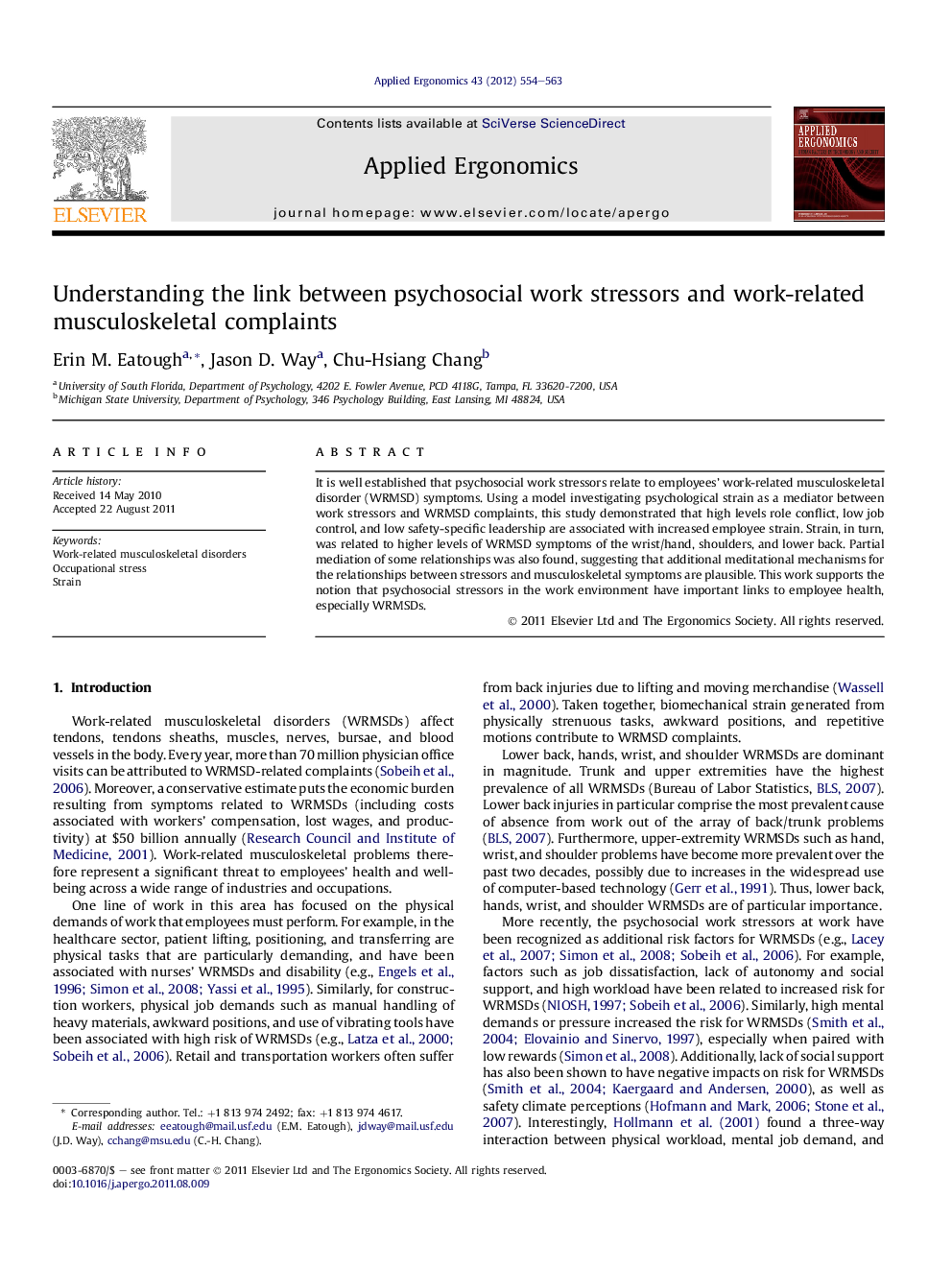| Article ID | Journal | Published Year | Pages | File Type |
|---|---|---|---|---|
| 548744 | Applied Ergonomics | 2012 | 10 Pages |
It is well established that psychosocial work stressors relate to employees’ work-related musculoskeletal disorder (WRMSD) symptoms. Using a model investigating psychological strain as a mediator between work stressors and WRMSD complaints, this study demonstrated that high levels role conflict, low job control, and low safety-specific leadership are associated with increased employee strain. Strain, in turn, was related to higher levels of WRMSD symptoms of the wrist/hand, shoulders, and lower back. Partial mediation of some relationships was also found, suggesting that additional meditational mechanisms for the relationships between stressors and musculoskeletal symptoms are plausible. This work supports the notion that psychosocial stressors in the work environment have important links to employee health, especially WRMSDs.
► We test a model investigating psychological strain as a mediator between work stressors and WRMSDs. ► Role conflict, low job control, and low safety-specific leadership are related to employee strain. ► Strain is related to higher levels of WRMSD symptoms of the wrist/hand, shoulders, and lower back. ► Psychosocial stressors in the workplace have important links to WRMSDs.
